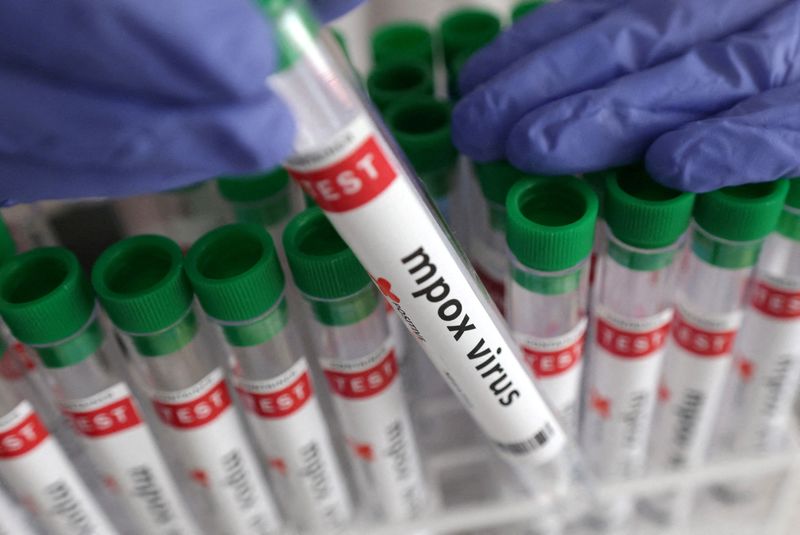By Jennifer Rigby
LONDON (Reuters) – Global health advocates have written to the makers of a key MPox diagnostic test to call for a reduction in the price from around $20 per test to $5 to address low testing rates in poorer countries that are heavily affected by the virus.
Medical (TASE:) Diagnostics company Cepheid’s GeneXpert mpox test is one of three tests approved for emergency use by the World Health Organization, but the price is prohibitive for countries like the worst-hit Democratic Republic of Congo, activists said.
Mpox was declared a global public health emergency by the WHO this summer, when an outbreak in Congo began spreading to neighboring countries. The virus typically causes flu-like symptoms and pus-filled lesions and can be fatal.
This week, the WHO said cases in Africa were showing an “overall upward trend”, although they may be leveling off in parts of Congo. But a lack of testing is hampering the ability to confirm cases, especially in Congo, one of the world’s poorest countries.
“We urge you to reduce the price of the MPOX test cartridges to $5 and prioritize delivery to African countries combating MPOX outbreaks,” read the letter sent by groups including the Rights -NGO Public Citizen and the medical charity Doctors Without Borders.
Cepheid’s test is especially important because there are machines available across Africa that process the results, as they are also used for tuberculosis testing.
Danaher (NYSE:), the parent company of Cepheid, lowered prices for TB tests to $7.97 last year under pressure from activists.
Asked for comment on the letter, a Cepheid spokesperson wrote: “We have worked quickly to ramp up production of our mpox test, including in response to an urgent request from the WHO.”
The company prioritized orders from areas where the test was most needed and had an access program that offered a “significant” discount for orders through the WHO and similar organizations, the statement said. It did not disclose what that discount was or make any other comment on the price.

The $5 price tag proposed by proponents is based on research showing the tests can be produced for less than that.
Public Citizen’s Access to Medicine director Peter Maybarduk said the WHO’s recent approval was an opportunity to ramp up testing. “Lower prices would help health facilities meet this moment,” he said.


